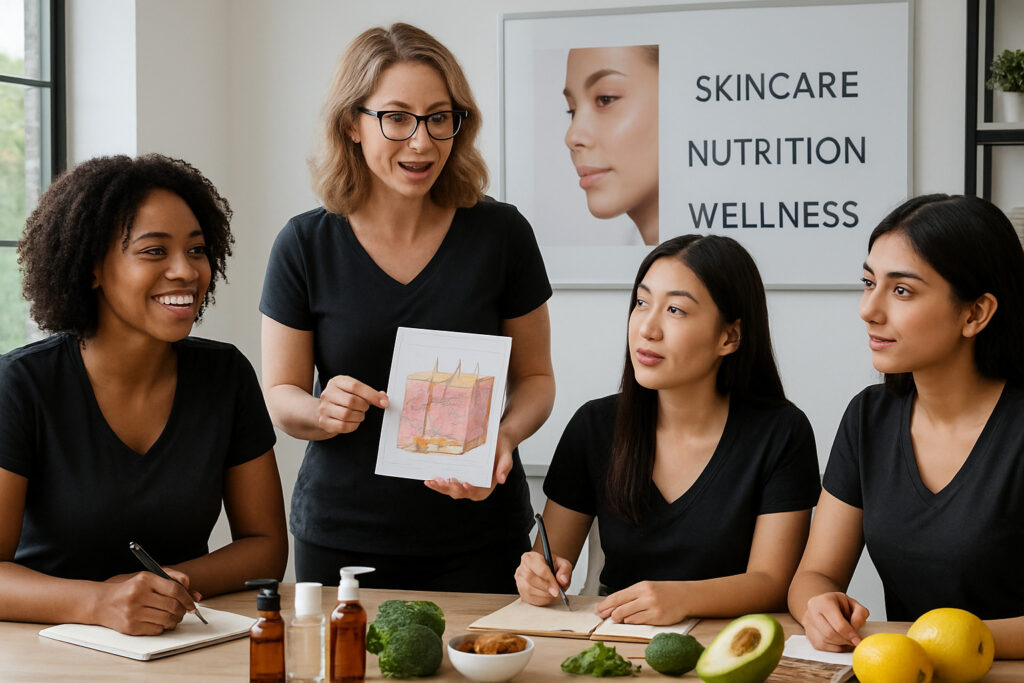Why Holistic Beauty Education Is Changing the Beauty Industry
Holistic beauty education combines traditional beauty training with wellness practices, nutrition science, and sustainable approaches to create well-rounded practitioners who treat the whole person, not just surface-level concerns.
What holistic beauty education covers:
- Mind-body-spirit connection – Meditation, breathwork, and energy work
- Nutrition and internal health – Functional foods, gut-skin axis, beauty nutrition
- Clean beauty formulation – Natural ingredients, low-tox products, sustainability
- Advanced modalities – Fascia massage, herbalism, botanical skincare
- Business and client care – Consultation skills, relationship building, ethics
The beauty industry is experiencing a major shift. More clients want practitioners who understand the connection between inner wellness and outer radiance. This demand has created exciting opportunities for beauty professionals who accept holistic approaches.
According to the U.S. Bureau of Labor Statistics, skincare specialists (including holistic estheticians) will see 10.3% job growth through 2033 – much faster than most other careers. The median salary ranges from $41,560 to over $77,330 for top practitioners.
Whether you’re starting fresh or expanding your current practice, holistic beauty education opens doors to more meaningful work and better client outcomes.
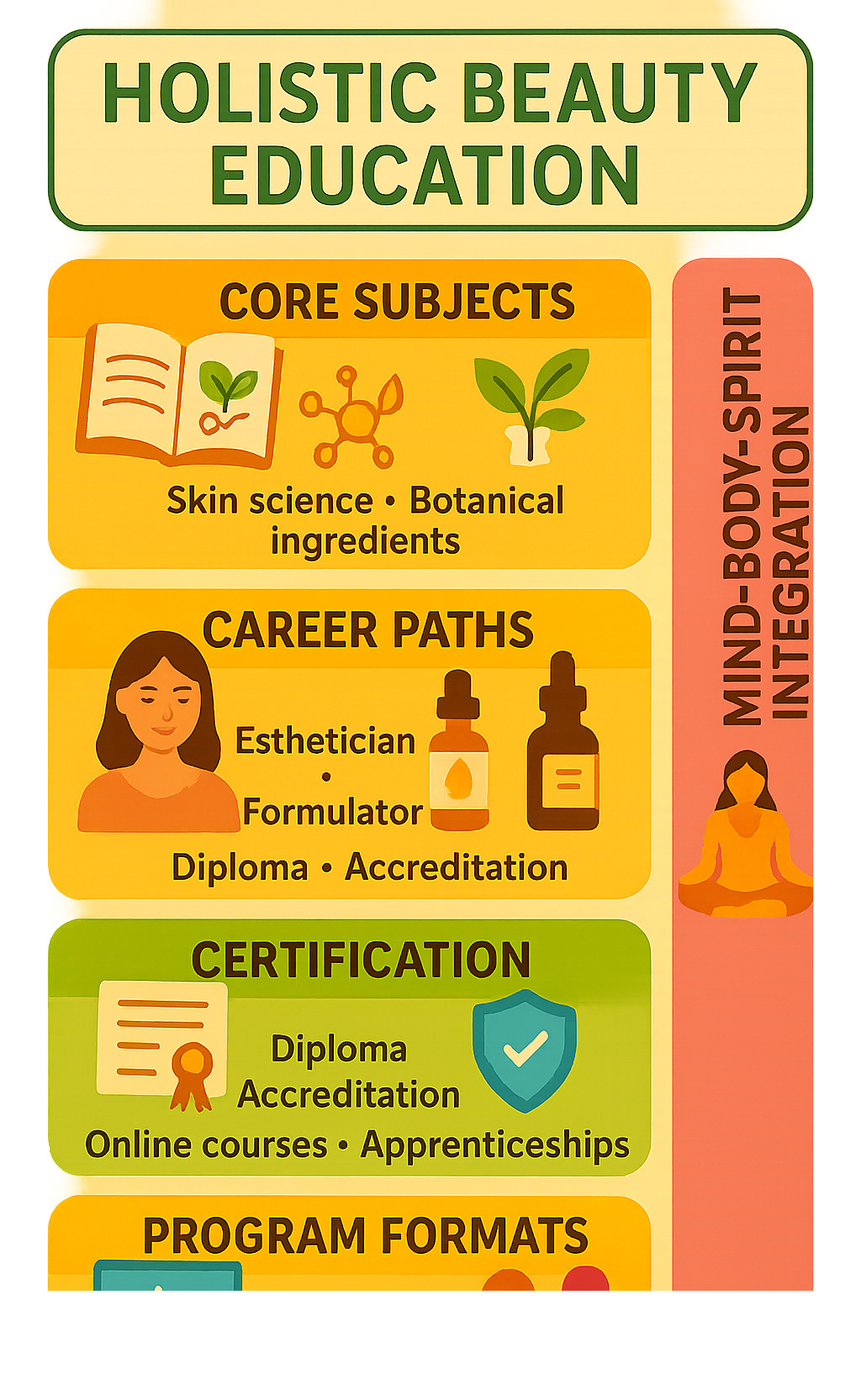
Easy holistic beauty education word list:
What Is Holistic Beauty? Core Principles & Pillars
Think of holistic beauty as the difference between putting a band-aid on a scrape versus actually cleaning and healing the wound. Holistic beauty education teaches us to look deeper than what we see in the mirror.
At its heart, holistic beauty recognizes that true radiance comes from the mind-body-spirit connection. Your skin reflects what’s happening inside – from the foods you eat to the stress you carry. When we support your body’s natural healing processes and treat you as a whole person, lasting beauty emerges from within.
Holistic vs. Conventional Approaches
The contrast between holistic and conventional beauty is like comparing a garden to a painting. Conventional beauty often focuses on the surface – covering, hiding, or quickly fixing what we don’t like. Holistic beauty nurtures the roots so the whole plant can flourish.
Conventional approaches typically emphasize external appearance, rely heavily on synthetic ingredients, and aim for quick results. They often treat symptoms rather than causes.
Holistic approaches take a whole-person focus instead. They prioritize non-invasive methods and low-tox products while seeking to understand root causes. Instead of just treating a breakout, a holistic practitioner might explore your diet, stress levels, and skincare routine to prevent future issues.
The Seven Pillars of Holistic Beauty
Modern holistic beauty rests on seven foundational pillars that work together:
Mindfulness forms the first pillar, teaching us to be present with our bodies. Movement comes next – understanding how our bodies move and feel in space.
Diet plays a crucial role, focusing on how food becomes medicine for beautiful skin. Topical care involves choosing clean, effective products that support rather than disrupt our skin’s natural functions.
Stress relief recognizes that chronic stress shows up on our faces and in our bodies. Eco practices connect our personal health to planetary health through sustainability and clean ingredients.
Finally, client connection emphasizes building genuine, therapeutic relationships. This pillar teaches practitioners to really listen and create safe spaces for healing.
These pillars support each other. When you practice mindfulness, you’re more likely to notice how certain foods affect your skin. When you focus on movement, you naturally reduce stress and improve circulation.
The beauty of this approach lies in how it integrates self-care and emotional wellness into every aspect of your routine. More info about Holistic Wellness: The Secret to Long-Lasting Beauty
Holistic Beauty Education Programs & Curricula
Finding the right holistic beauty education program can feel overwhelming with so many options available. The good news? There’s truly something for everyone, whether you’re a complete beginner or an experienced practitioner looking to expand your skills.
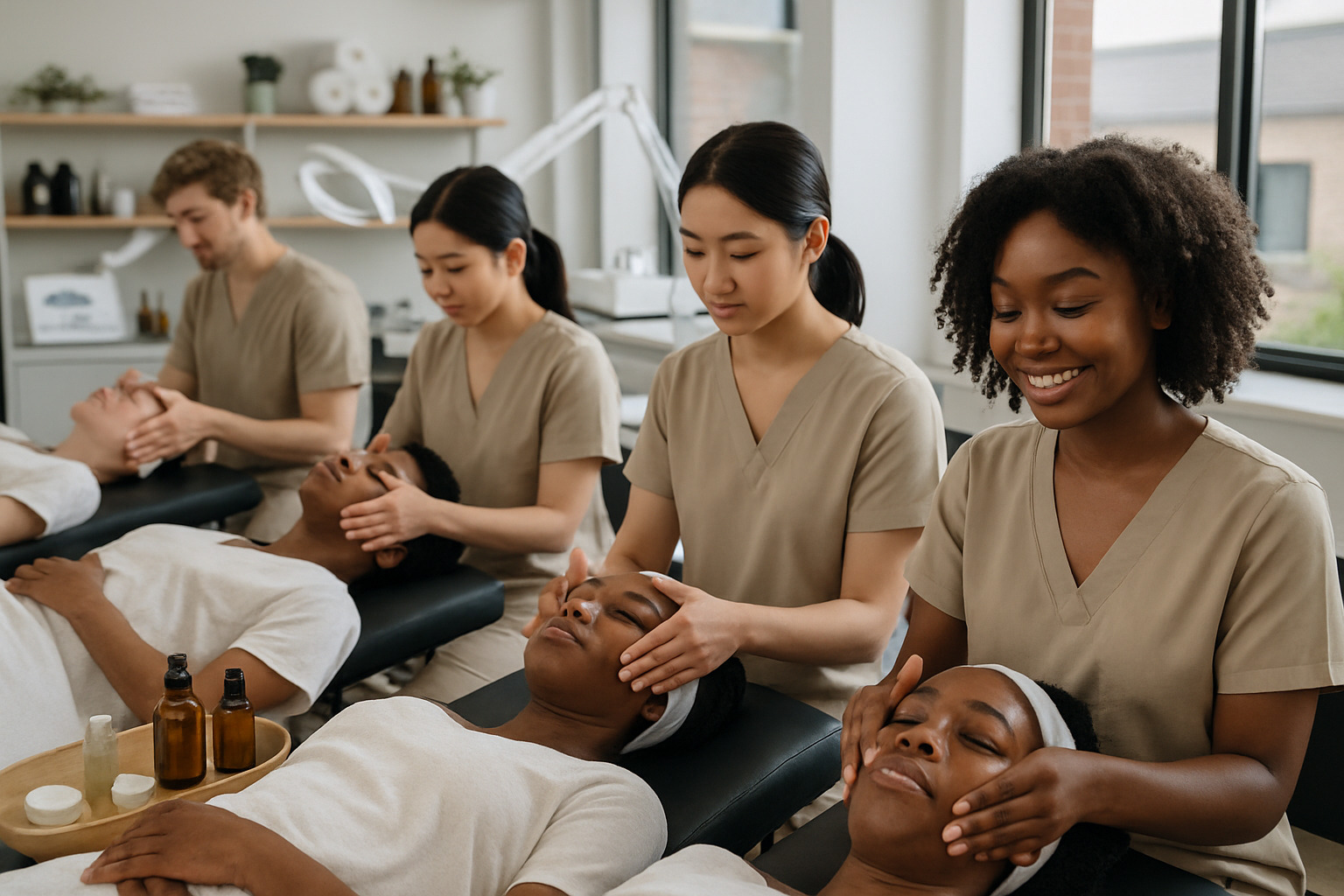
The landscape has evolved beautifully over the past decade. You can now choose from holistic esthetics programs that run 300 to 1,200 hours, covering everything from skin science to energy work. If nutrition fascinates you, beauty nutrition diplomas dive deep into the gut-skin connection and functional foods that create radiance from within.
For the creative souls, natural skincare formulation courses teach you to blend your own clean beauty products. There are even specialized holistic hair and curl academies focusing on low-tox hair care, plus massage and bodywork programs that blend traditional techniques with energy healing.
Investment ranges vary widely, making education accessible at different life stages. Introductory courses typically cost $3,000 to $5,000, while comprehensive 600-hour programs range from $6,500 to $8,000. The most extensive 1,200-hour training can reach $13,000, though specialized online programs offer flexibility from $44 to $1,997.
Core Subjects Covered
Holistic beauty education weaves together science and soul in fascinating ways. You’ll build a strong foundation in human anatomy and physiology, learning how the body’s systems work together to create healthy skin. Skin histology and function becomes your roadmap for understanding what’s happening beneath the surface.
The chemistry side covers cosmetic formulation and botanical medicine principles, giving you the tools to understand why certain ingredients work magic together. But here’s where it gets exciting – you’ll also master practical skills like holistic facial techniques, energy work, and intention setting.
Many programs now include gua sha and facial cupping, intraoral massage, and natural product formulation. These aren’t just trendy add-ons – they’re powerful tools that set holistic practitioners apart.
The business side isn’t forgotten either. You’ll learn client consultation skills, professional standards, sanitation protocols, and ethical practices.
More info about Skincare Education Resources
Why Holistic Beauty Education Sets You Apart
In today’s crowded beauty market, holistic beauty education gives you superpowers that clients desperately want. Think about it – anyone can apply a mask, but how many practitioners can explain why someone’s stress is showing up as breakouts around their jawline?
Professional differentiation happens naturally when you understand the deeper connections. Clients notice when you ask about their sleep patterns, stress levels, and eating habits during a consultation. They feel seen in a way that traditional beauty treatments often miss.
The client satisfaction factor is huge. When you help someone understand that their skin issues might be connected to gut health or chronic stress, you’re not just treating symptoms – you’re empowering them with knowledge. Results last longer, and clients become raving fans.
Mind, Body & Spirit Integration in Training
When you step into holistic beauty education, you’re entering a world where everything is connected. Your thoughts affect your skin. Your breathing changes your complexion. Your emotional state shows up in how you carry yourself and how others perceive your beauty.
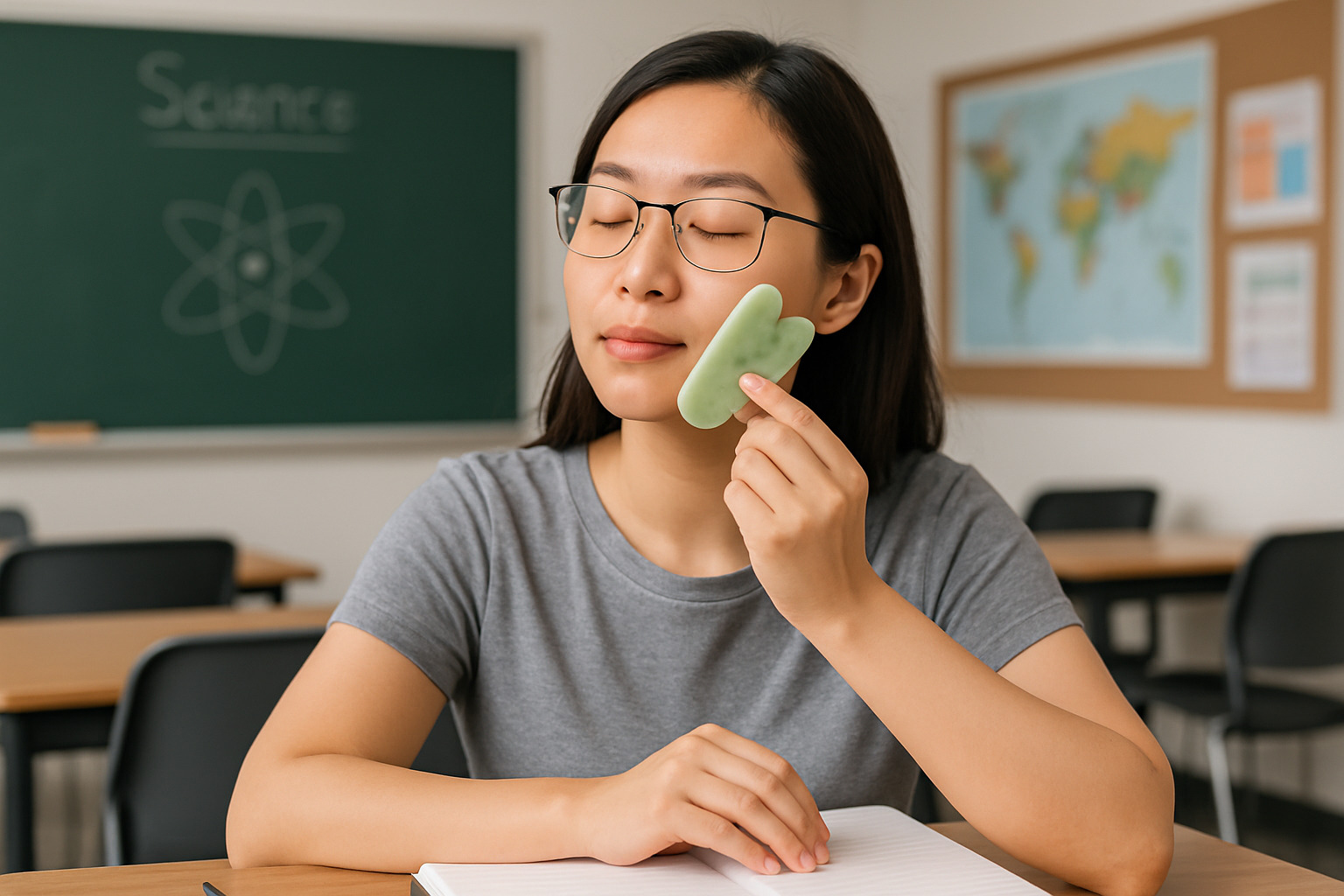
Mind practices form the foundation of this approach. Students learn meditation and mindfulness techniques that they can use during treatments to stay present and centered. They practice breathwork protocols that actually improve circulation and reduce stress – both for themselves and their clients. There’s also training in visualization and intention-setting, because how you approach a treatment matters just as much as what products you use.
The body integration methods are where things get really interesting. Students learn fascia release techniques that can naturally sculpt and lift facial features. They master lymphatic drainage to support the body’s natural detoxification processes.
Many programs now include posture and movement assessment because how you hold your body affects everything from your circulation to your confidence. There’s also training in nervous system regulation through touch – learning how your presence and intention can help clients feel safe and relaxed.
Spirit integration elements might sound mystical, but they’re surprisingly practical. Students learn basic energy work and healing modalities that help them tune into what their clients really need. They explore how to bring ritual and ceremony into beauty practices, making each treatment feel special and meaningful.
Integrating Holistic Beauty Education into Daily Practice
The real magic of holistic beauty education happens when students learn to weave these principles into their everyday work. It’s not about adding complicated rituals – it’s about bringing more awareness and intention to what you’re already doing.
Morning rituals become a cornerstone of practice. Students learn to start each day with intention-setting and self-care practices. When you model the lifestyle you’re teaching clients, your authenticity shines through.
Mindful product use transforms routine applications into therapeutic moments. Students find that it’s not just about what products to use, but how to apply them with presence and healing intention.
Client interactions shift from service transactions to opportunities for real change. Every consultation becomes a chance to truly see and support the whole person, not just their skin concerns.
More info about Mindful Skincare Practices
Nutrition & Internal Health Modules
Here’s where holistic beauty education gets really exciting – understanding how what we eat literally becomes our skin. Students dive deep into the science of beauty nutrition, learning that true radiance starts from within.
Functional beauty foods take center stage in these modules. Students learn which foods act as medicine for the skin – think antioxidant-rich berries, collagen-supporting bone broth, and inflammation-fighting turmeric.
The gut-skin axis becomes a fascinating area of study. Students find how digestive health, microbiome balance, and inflammation directly affect skin conditions like acne, eczema, and premature aging.
Hydration science goes way beyond just drinking eight glasses of water. Students learn about cellular hydration and how different beverages impact skin moisture.
Many programs also teach beauty elixir formulation – creating nutricosmetic drinks, superfood powders, and even functional treats that support beauty from within.
Careers, Certifications, and Industry Outlook
The world of holistic beauty is opening doors to careers that didn’t even exist a decade ago. If you’ve ever dreamed of work that combines your passion for beauty with genuine healing, this field offers exciting possibilities.
The career paths emerging from holistic beauty education are as diverse as the field itself. Holistic estheticians are leading the charge, offering facial treatments and skin consultations that address the whole person. These practitioners combine traditional skincare knowledge with wellness coaching, creating transformative experiences for their clients.
Beauty nutritionists represent another growing specialty. These professionals focus specifically on the gut-skin connection, helping clients understand how their diet directly impacts their complexion.
For the creatively inclined, becoming a natural product formulator offers the chance to develop clean beauty products using botanical ingredients. These professionals understand both the science of skincare and the art of sustainable formulation.
Many graduates dream of opening their own holistic spa or wellness center. These spaces integrate multiple healing modalities under one roof, creating sanctuary-like environments where clients can truly unwind and reconnect with themselves.
The teaching path appeals to those who want to share their knowledge. Holistic beauty educators work in schools, lead workshops, and create online programs that train the next generation of practitioners.
The numbers tell an encouraging story. According to the U.S. Bureau of Labor Statistics, skincare specialists (including holistic estheticians) will see 10.3% job growth through 2033 – much faster than most other careers. The median salary sits at $41,560 annually, with the top 10% of practitioners earning $77,330 or more.
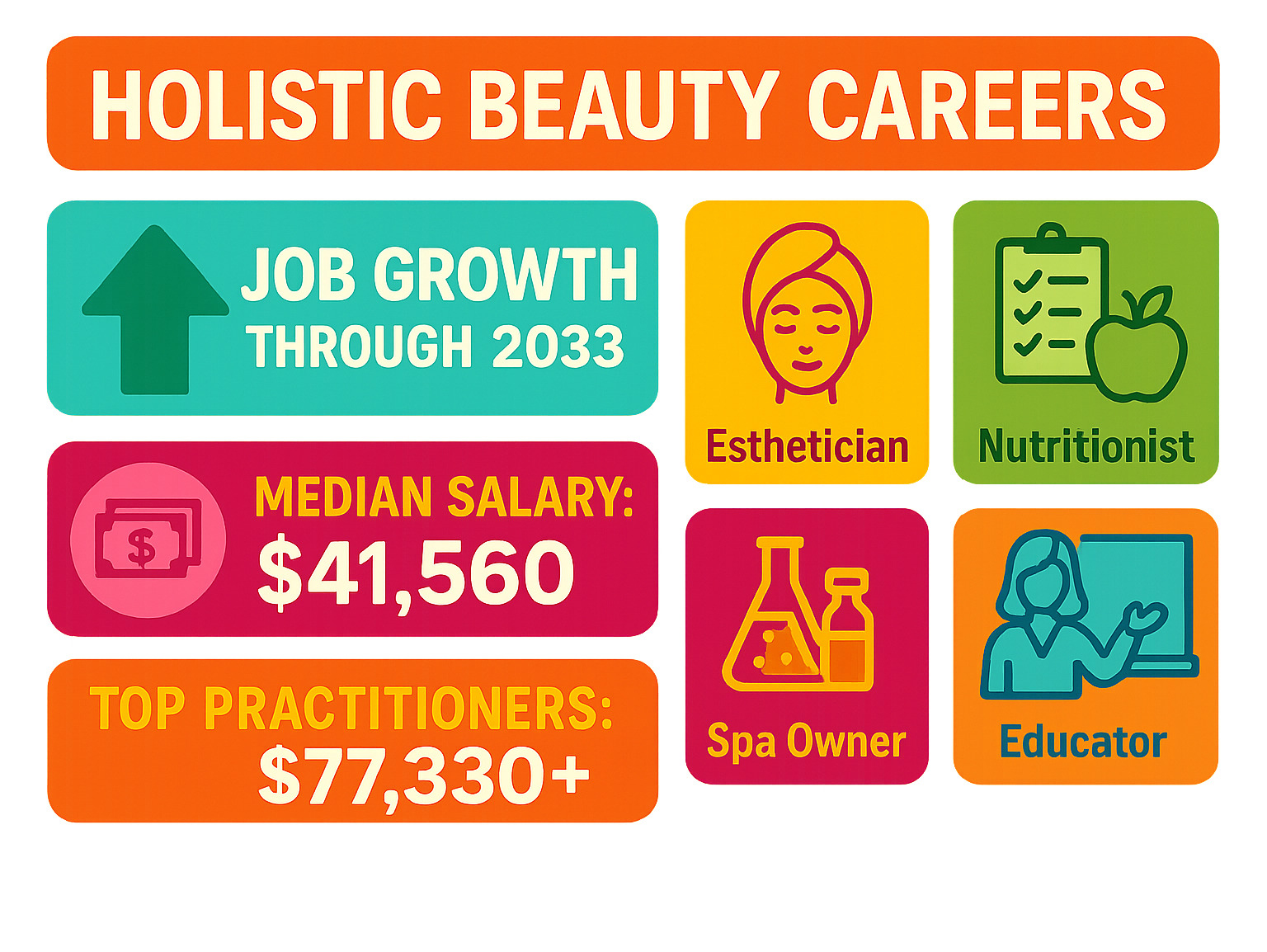
When it comes to credentials, several organizations provide respected certifications. The NCEA (National Coalition of Estheticians Association) recommends a comprehensive 1,200-hour curriculum for holistic skin care certification. The IPHM (International Practitioners of Holistic Medicine) offers accreditation specifically for holistic beauty medicine programs.
Building Client-Centric Practices
What sets holistic beauty practitioners apart is their ability to create deep, meaningful relationships with clients. Holistic beauty education places huge emphasis on this human connection aspect.
Advanced consultation skills form the foundation of successful practice. Students learn to listen with their whole being, asking questions that reveal not just skin concerns but lifestyle patterns, stress levels, and emotional well-being.
Empathy and presence might sound soft, but they’re actually powerful professional tools. When clients feel truly seen and heard, they’re more likely to follow through with recommendations and return for ongoing care.
Holistic assessment goes beyond looking at skin conditions in isolation. Practitioners learn to spot connections between digestive issues and acne, stress patterns and premature aging, or sleep problems and dull complexion.
More info about Beauty and Mental Health
How to Choose the Right Holistic Beauty Course & Emerging Trends
Finding the perfect holistic beauty education program can feel overwhelming with so many options available. But with the right approach, you can find a program that aligns with your goals, budget, and learning style.
Start by checking accreditation and recognition. Look for programs backed by respected organizations like IPHM, NCEA, or VTCT. This isn’t just about having fancy letters after your name—it’s about ensuring employers and clients will trust your credentials.
Curriculum depth matters more than you might think. The best programs don’t just teach you techniques—they help you understand the why behind everything you do. Your ideal program should weave together scientific foundations like anatomy and chemistry with practical skills like treatment techniques and product formulation.
Consider your delivery format carefully. Online programs offer flexibility for busy schedules, while in-person training provides hands-on experience you can’t get through a screen. Many successful practitioners have found their sweet spot with hybrid programs that combine both approaches.
Budget considerations go beyond just tuition costs. Factor in materials, potential travel expenses, and ongoing education requirements. Quality holistic beauty education is an investment in your future, but it shouldn’t leave you financially stressed.
Take time to research your instructor credentials. You want teachers who’ve walked the walk, not just talked the talk. Look for practitioners with both formal education and real-world experience building successful holistic beauty practices.
More info about Holistic Beauty Routines
Future Trends Shaping Holistic Beauty
The holistic beauty world is evolving faster than ever, and staying ahead of these trends can set your career apart.
AI skin analysis is revolutionizing how we understand individual skin needs. Instead of guessing what might work, practitioners can now use advanced diagnostic tools to create truly personalized treatment plans.
The microbiome revolution is changing everything we thought we knew about skin health. We’re moving beyond basic cleansing routines to focus on nurturing the beneficial bacteria that keep skin healthy and glowing.
Sustainability isn’t just trendy anymore—it’s essential. Clients expect zero-waste salons, upcycled ingredients, and regenerative sourcing practices. The days of wasteful beauty practices are numbered.
Nutricosmetics and functional foods are blurring the lines between what we eat and how we look. Beauty-supporting nutrition is becoming as important as topical treatments.
Biohacking tools like red light therapy and wearable technology are finding their way into holistic beauty protocols. These aren’t replacing traditional methods—they’re enhancing them with data-driven insights.
Perhaps most importantly, the mental health and beauty connection is finally getting the attention it deserves. Scientific research continues to validate what holistic practitioners have long known: our emotional well-being directly impacts our physical appearance.
Frequently Asked Questions about Holistic Beauty Education
Starting your journey in holistic beauty education can feel overwhelming with so many questions swirling around. Let’s address the most common concerns we hear from aspiring students.
What prerequisites do I need to enroll?
Here’s the beautiful thing about holistic beauty education – it truly welcomes everyone, regardless of your background. Whether you’re a busy parent looking for a career change, a recent high school graduate, or someone who’s worked in traditional beauty for years, there’s a place for you.
Most introductory programs don’t require any previous experience. Your passion for helping others and genuine curiosity about wellness matter more than formal qualifications. Some students come from nursing backgrounds, others from retail, and many are complete newcomers to the beauty world.
How long does certification usually take?
The timeline for your holistic beauty education depends on your goals and how much time you can dedicate to learning.
Introductory courses typically run 300-600 hours, which translates to about 3-6 months if you’re studying part-time. These programs give you a solid foundation in holistic principles and basic techniques.
Comprehensive programs require 1,200+ hours and usually take 6-12 months to complete. These deeper dives cover everything from advanced facial techniques to business skills and nutrition integration.
Online specialized courses offer the flexibility of self-paced learning. Most students finish within 3-6 months, but you can take longer if life gets busy.
Are online holistic beauty programs respected by employers?
Absolutely! The key is choosing programs that have proper accreditation from recognized bodies. Online holistic beauty education has gained tremendous respect, especially since many programs now include hands-on components that ensure you’re getting practical experience.
Look for programs that offer in-person intensives, local practicum opportunities, or comprehensive home study kits with real products and tools. Many successful practitioners have built thriving careers entirely from online education.
The holistic beauty industry values knowledge, passion, and results over where you learned your skills. What matters most is choosing accredited programs that provide thorough training and ongoing support.
Conclusion
The world of holistic beauty education is opening doors to a more meaningful way of practicing beauty and wellness. Throughout this guide, we’ve seen how this approach goes far beyond traditional training to create practitioners who truly understand the connections between mind, body, and spirit.
The numbers tell an encouraging story. With 10.3% job growth projected through 2033 and median salaries reaching $77,330 for top practitioners, this field offers both purpose and financial stability. But the real reward goes deeper than statistics – it’s about the profound satisfaction of helping clients transform from the inside out.
Whether you’re just starting your beauty career or looking to expand your current practice, holistic beauty education offers something unique. You might find yourself drawn to the science of nutrition and skin health, fascinated by the healing power of botanical ingredients, or excited about creating custom formulations for your clients.
What makes this education truly special is how it changes not just what you do, but how you see the world. You’ll begin to notice the connections everywhere – how stress shows up in skin, how nutrition affects energy levels, how mindful touch can be deeply healing.
The beauty industry needs more professionals who understand these deeper connections. Clients are hungry for practitioners who can see the whole picture and offer real, lasting solutions rather than quick fixes.
At Beyond Beauty Lab, we believe in supporting your journey with practical resources and evidence-based guidance. The path toward becoming a holistic beauty practitioner doesn’t have to feel overwhelming when you have the right support and community around you.
Your change starts with curiosity and a willingness to learn. Maybe it’s enrolling in that first course you’ve been considering, attending a local workshop, or simply beginning to ask different questions with your current clients.
The future of beauty is holistic, and there’s never been a better time to be part of this exciting movement.

